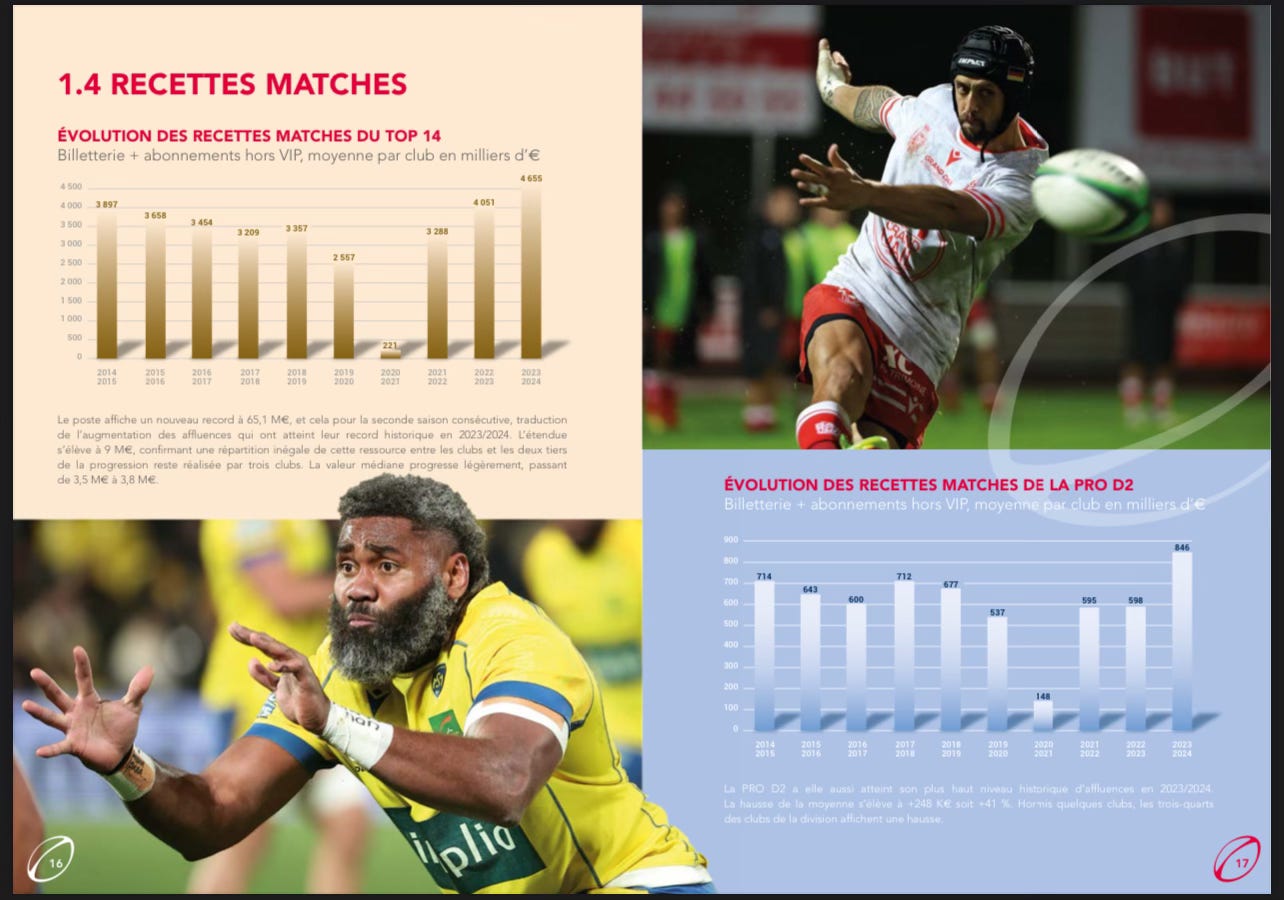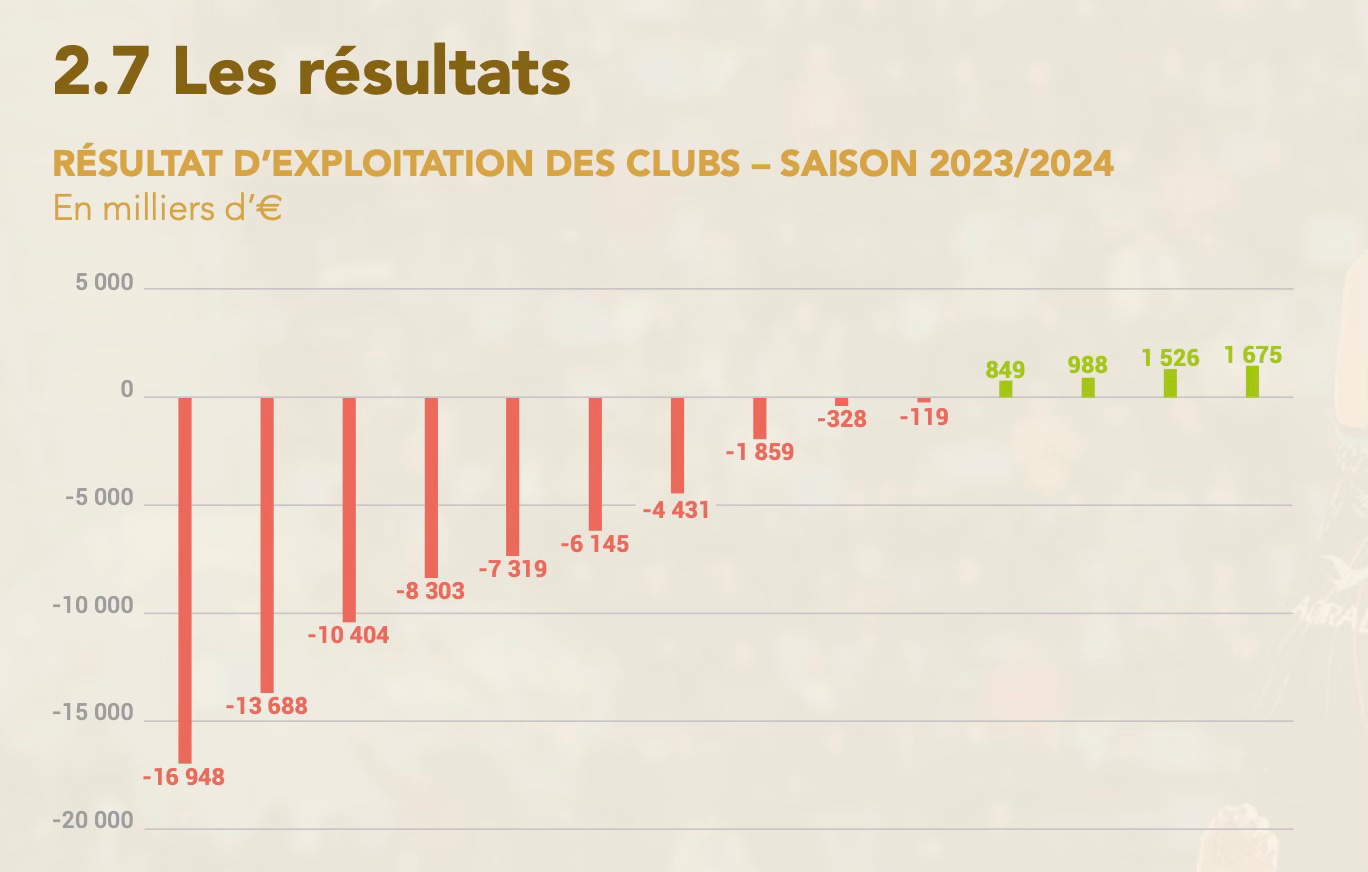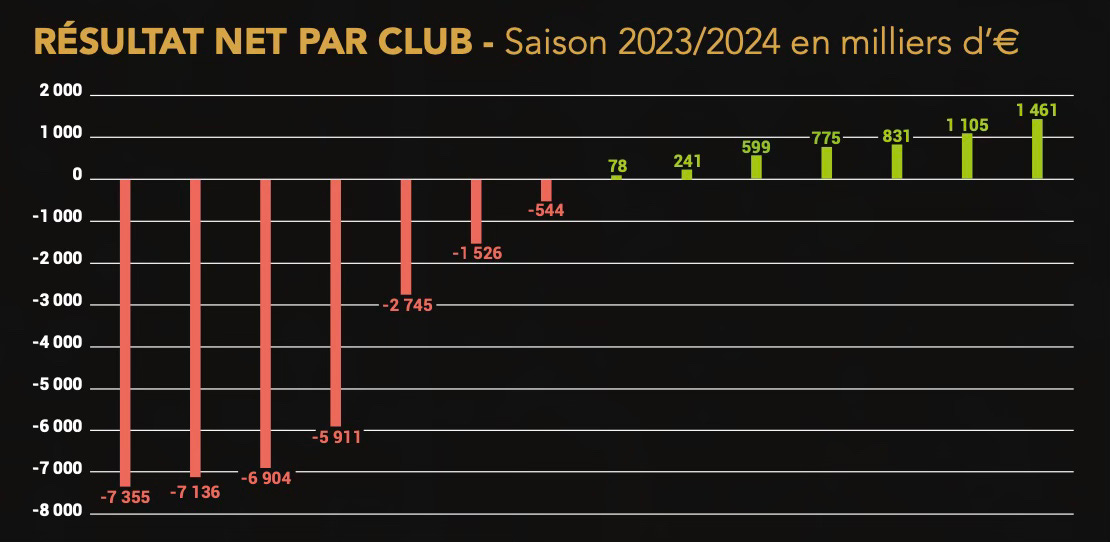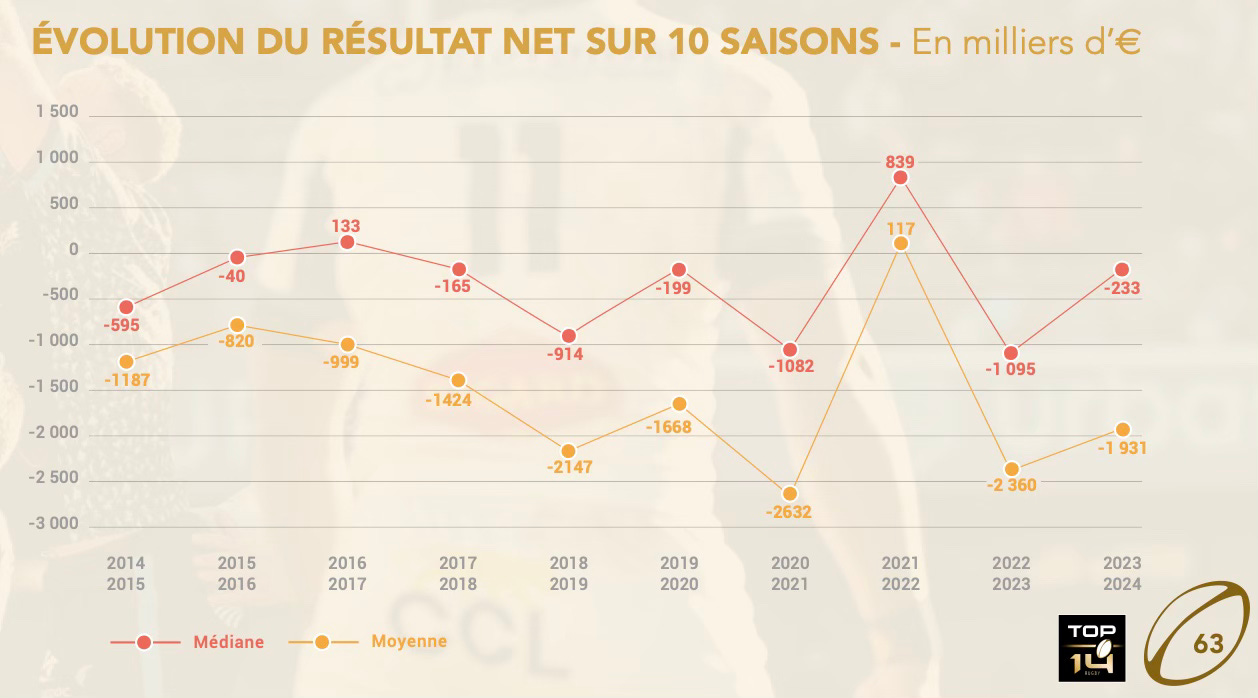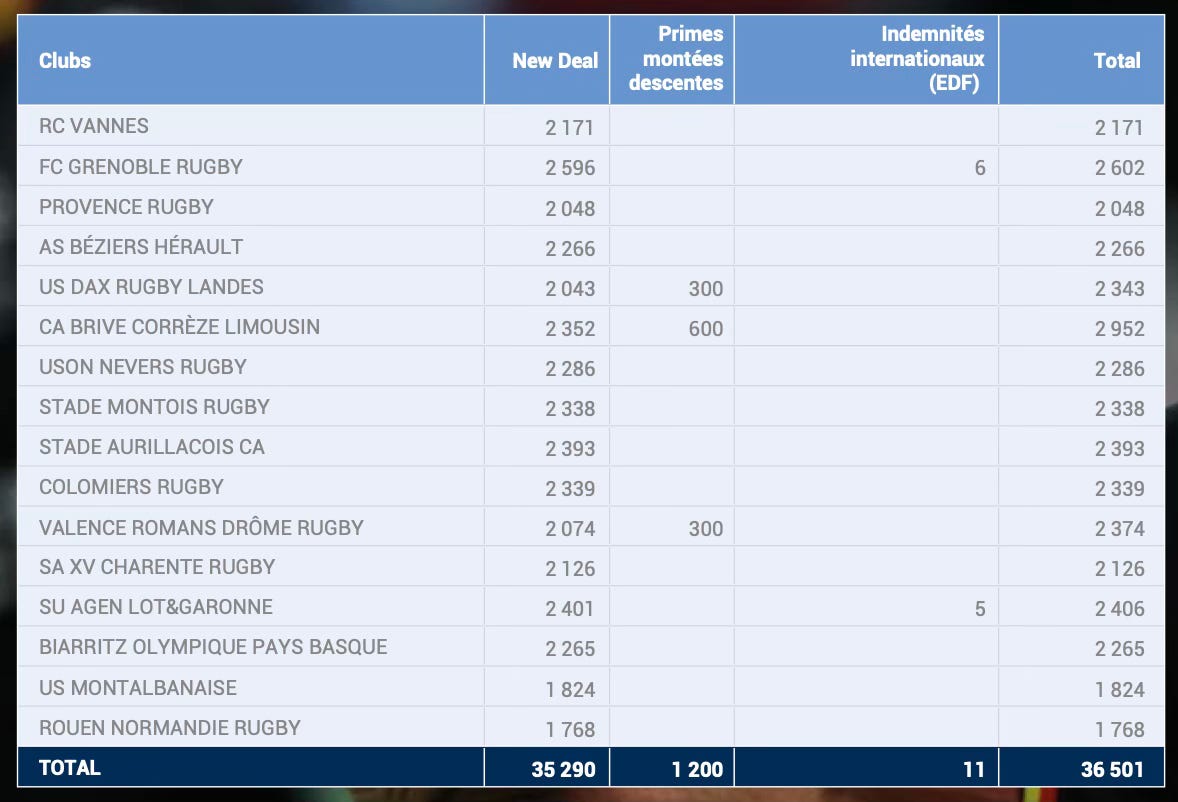Is French Rugby In Trouble?
The TOP14 is the most valuable league in the world... but can it go on like this?
This is the third and final part of my trilogy of articles breaking down the LNR financial report for the 2023/24 season. You can find the full report here. Find part 1 of the trilogy looking at where the money comes from here and part 2 looking at how it is spent here.
The French TOP14 might be the most successful club rugby union competition in the world - in terms of audience, quality of teams and turnover - but the release of it’s financial report a few months ago was accompanied by headlines of record losses. It triggered a social media reaction bemoaning the financial ill-health of rugby as a whole.
But was this a fair and accurate depiction of the situation? In this article we’ll explore the finances further, add context and reveal more drama that has emerged since…
Profit & Loss
LNR reported record turnovers for the TOP14 and ProD2 last season totalling almost half a billion euros. This makes French rugby by far the most valuable in the world. The TOP14 alone posted a 434M euro turnover, a 9% increase on the previous season. Gate receipts were up 1.4M on 2 seasons prior, whilst ProD2 gates are also back to pre-COVID levels.
However, the headlines from this financial report focused almost entirely on the losses. Overall, 64.5M euros was lost by the 14 top flight clubs, a 10% increase on the previous season. Only four clubs operated in the green last season and none hit 2M in profit. Meanwhile, the worst off team made a staggering 17M euro loss in one season.
LNR said that inflation was a major contributor to the increased losses. The net results were not so dramatic, with 7 clubs (50% of the league) operating in profit and the worst operating loss was 7.4M. Total losses across the league are reduced from ~65M to a reported ~35M thanks to loan forgiveness (creditors not calling in debts) - this is most likely owners ‘giving’ the clubs money.
We do not know which clubs is which in these graphs, but some of them are open about their financial positions. For instance, the Toulon president Bernard Lemaitre has given interviews which appear to indicate that they are the club making the highest losses. Meanwhile, UBB’s president has said they are operating at a small profit.
The total losses are shown by the LNR report to be not only less severe than last season but better than 3 of the preceding 4 seasons, although the figures do not appear to match those mentioned above. The graph below shows the average losses by season for the last 10 seasons.
For context, almost no rugby clubs anywhere outside France operate at a profit either. In other sports, Manchester United lost 113M euros in the same period. Many owners of clubs are able to either write off debt thanks to vast personal wealth or leverage a large amount of debt against high value assets such as stadiums and other facilities.
Will Clubs Go Bust?
No major French rugby clubs have gone out of existence in recent times. More common is for clubs to merge with local rivals to avoid insolvency - although this happens relatively infrequently.
However, it is common for clubs to fall foul of the financial regulators. Several clubs in the ProD2, such as Grenoble and Biarritz, have had points deductions in the past few seasons thanks to breaking spending/accounting regulations.
Biarritz, in particular, are a lesson in the perils of unsustainable spending. When their wealthy benefactor passed away a little over a decade ago, they quickly tumbled from the top of the TOP14 and are set to play 3rd tier rugby next season after being relegated from the ProD2 for financial irregularities. The Basque club nearly went out of existence last year, only to be saved by a consortium of former players.
There are also concerns around Stade Francais, the 2nd most successful French team in history. Their owner, Hans-Peter Wild (the man behind drinks company Capri-Sun) is said to have put 100M of his own money into the club over the past few seasons and they have the 2nd highest expenditure in the league. Yet, in the 2024/25 season, they have been in a relegation battle. Relegation to the ProD2 is thought cost clubs around 5M euros per season with payments from LNR being, on average, ~3.5M less.
When asked if he could walk away from the club, Wild simply replied “now is not a good time to ask”. Stade Francais have already survived one attempted merger with Parisian rivals Racing 92. Racing’s owner, billionaire Jacky Lorenzetti, recently gave an interview in which he said the French capital could not support two TOP14 teams. The two clubs usually have the lowest attendances in the league, despite being in the most populous city in the country.
The Parisians are not the only ones who are worried; there is a push from several clubs across the TOP14 to reduce the salary cap (currently set at 10.4M + credits and exemptions). The new LNR president, former Lyon man Yann Roubert, has publicly stated it his target to do just that. He also wants to punish teams who breach financial regulations more severely. This shows how the mood in French rugby is starting to turn against the excessive spending culture.
The arguments against decreasing the salary cap would be sacrificing the competitive advantage TOP14 clubs have over the majority of their European rivals - particularly those in England - wanting to keep the league as a destination for top international stars and of course inflation; reducing the salary cap would, in real terms, mean players taking pay cuts.
Summary
By evaluating the data in the LNR report, we see that the majority of TOP14 clubs operate at a loss, with some losing more than 10M before loan forgiveness is applied. We see that losses are increasing, with 2023/24 witnessing a 10% increase in losses compared to the previous season. This is not unusual or unique in sport, where it is considered normal to lose millions per season.
We see that many clubs are still dependant on wealthy individuals as financial backers and there is genuine long term jeopardy for clubs if those backers either withdraw or pass away. There is also a changing of mood in France as clubs, supported by the LNR president, are pushing for a reduction in the salary cap.
However, due to the popularity/commercial value of the league continuing to increase and clubs having valuable assets to leverage debt, it is unlikely we will see top clubs going out of existence.
Thanks for reading! If you enjoyed this, you probably will enjoy the weekly podcast I do all about French rugby: the TOP14 Digest. Check it out via the links below!





